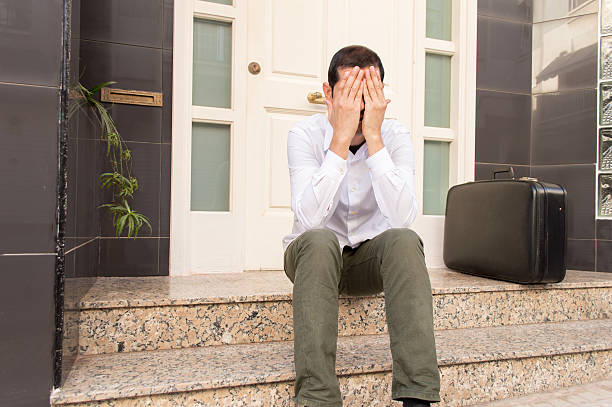If you’re living in a rental unit, you understand the idea that you have a place to live in return for paying rent, usually on a monthly basis. You also probably know that this agreement has additional terms and conditions outlined in a lease.
So if you don’t pay your rent or you violate a provision in your lease, it’s quite possible that yes, your landlord can really kick you out. But in practice, carrying out an eviction is a bit more complicated for the landlord. There may also be some legal options available to delay when an eviction occurs.

Reasons Your Landlord Can Kick You Out
There are many reasons why a landlord could want to kick you out. Some of them will be legal and others illegal. But most lawful evictions occur for one of three possible reasons.
First, there’s nonpayment of rent. If a tenant doesn’t pay rent, they don’t have the right to continue living in the property.
Second, the tenant has violated a provision in the lease. For instance, the lease may limit tenants to one pet per unit and the tenant has two dogs in their apartment.
Third, the lease has ended and the landlord no longer wants to have you as a tenant.
How a Landlord Can Evict You
Each state will have its own laws outlining how an eviction process will work. But practically all states will first require your landlord to give you notice they intend to evict you. In Alabama, these notices will give you at least seven days before you have to leave.
If you choose to ignore the eviction notice and stay, your landlord will then file an eviction lawsuit against you. If you believe your landlord doesn’t have the right to evict you, this is your chance to make your arguments as to why.
If the landlord wins the case against you, they’ll get a court order and a law enforcement officer will conduct the actual eviction. In Alabama, it is illegal for the landlord to physically remove you from the premises, even if they won their eviction case against you.
Legal Options If Getting Evicted
Assuming you don’t have a legal defense to the reason you’re being evicted, one option to consider is bankruptcy. Filing for bankruptcy may not be the best thing to do in response to an eviction. But if you’re getting evicted for nonpayment of rent and are drowning in debt, then bankruptcy might be something to consider.
Specifically, if you file for Chapter 7 bankruptcy, you can discharge many of your debts. In certain situations, this can include debts owed under a lease due to back rent. So if you’re getting evicted for nonpayment of rent, agreeing to leave might be something to consider if you’re already filing Chapter 7 bankruptcy.
And regardless of if you file for Chapter 7 or Chapter 13 bankruptcy, you can use the automatic stay to delay the eviction. An automatic stay will temporarily stop creditors from trying to collect debts against you, including eviction actions. One thing to keep in mind is that you need to file for bankruptcy before your landlord gets an eviction judgment.
The Eviction Moratorium
The Director of the Centers for Disease Control and Prevention agreed to extend the eviction moratorium until about October 1, 2021. However, the Director indicated that the intent is for this to be the last extension of the moratorium.
Still Worried About Getting Kicked Out?
If your landlord has sent you a notice of eviction, or you believe they’re about to start the eviction process, don’t lose hope. There may be a way to fight the eviction or buy some time before you have to move out. Either way, it might be worth contacting a bankruptcy attorney in Birmingham or wherever you live.